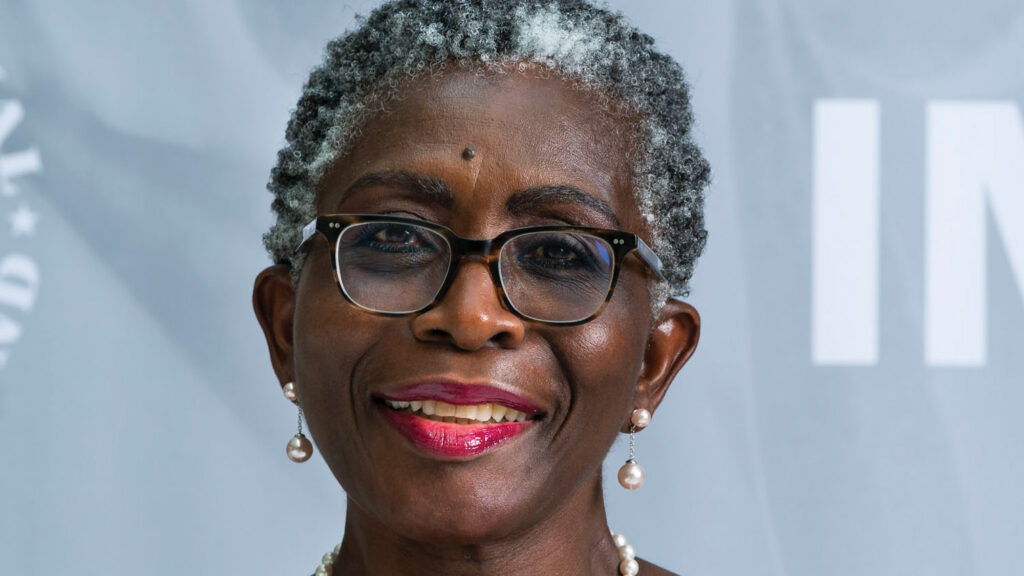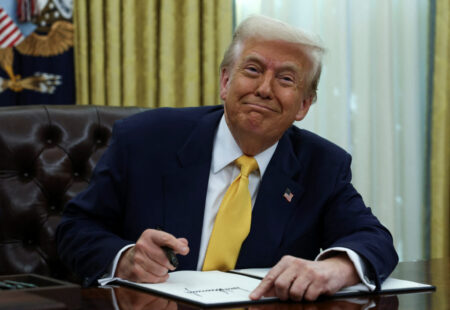- Antoinette Monsio Sayeh is set to retire as Deputy Managing Director of the International Monetary Fund (IMF) on September 12, 2024.
- The IMF says her experience, deep integrity, and wise judgment have been invaluable to the global lender.
- Antoinette Sayeh oversaw several vital initiatives of operations, policies, and corporate priorities, drawing on her deep knowledge of the institution.
Liberian management icon and trailblazer Antoinette Monsio Sayeh is set to retire from the International Monetary Fund (IMF) on September 12, 2024.
In an update by the IMF Managing Director Kristalina Georgieva, Antoinette Sayeh will conclude her tour of duty in the Washington-based institution this September where she has been serving as the Deputy Managing Director since 2020.
At the helm, she served with deputy managing directors Kenji Okamura (Japan), Bo Li (China) and Gita Gopinath (US/India) who is the first managing director.
“Antoinette has been a pillar of the Fund’s leadership team for many years. Her incredible experience, deep integrity, and wise judgment have been invaluable to us, and her unwavering commitment to our institution has been truly exemplary,” Kristalina Georgieva, said in an update.
“Antoinette represents the best of a life devoted to public service: genuine care for the well-being of the people we serve and her ability to place them front and center of our work. This care and concern also extended to the staff of the Fund, for whom she has been a mentor, advisor, and coach to many,” Ms. Georgieva added.
Antoinette Sayeh led advocacy for low-income IMF members
During her tenure at the helm of IMF, Ms. Sayeh oversaw several vital initiatives of operations, policies, and corporate priorities, drawing on her deep knowledge of the institution.
Born on 12 July 1958 in Monrovia, Liberia, Antoinette Sayeh is most known for her tireless advocacy for low-income and fragile and conflict-affected members of the IMF most of which are domiciled in her home continent, Africa.
Her work as the IMF saw her serve as Director of the African Department between 2008 and 2016, a historic assignment given that she was the first woman to lead an IMF regional department.
During this period, Antoinette Sayeh brought a deep understanding of the challenges facing the region and led a major transformation of the institution’s relationship with its member countries in sub-Saharan Africa.
One of her outsatnding contribution to reforms at the Bretton Woods institution was IMF policies on concessional financing, debt, and capacity development. “She was a strong advocate for changes that enabled the IMF to provide emergency financing and debt relief to the three African countries hit by the Ebola crisis in 2014,” the IMF noted in a media update.
Antoinette Sayeh served as Finance minister in Ellen Johnson Sirleaf’s Cabinet
Before taking up the post of IMF Deputy Managing Director, Antoinette Sayeh was a Distinguished Visiting Fellow at the Center for Global Development from 2016 to 2020 and served as the external Co-Chair for the 19th Replenishment of the World Bank Group’s International Development Association.
Earlier, as a Cabinet Minister of Finance in post-conflict Liberia from January 2006 through June 2008, Ms. Sayeh led the west African country through the clearance of its long-standing multilateral debt arrears and the HIPC Decision Point.
Before joining the first elected female head of state in Africa, President Ellen Johnson Sirleaf’s Cabinet, Antoinette Sayeh enjoyed a stellar career, working for the World Bank Group for 17 years, holding various senior positions. Before that, she worked in Liberia’s Ministries of Finance and Planning.
“Antoinette demonstrates that rare combination of institutional leadership, deep analytical capacity, unparalleled ethical standards, and sound judgment,” Ms. Georgieva added. “She will be greatly missed.”
Founded by 44 member countries that aimed at building a framework for economic cooperation in 1944, the IMF has evolved into a network of 190 countries that currently make up its near-global membership. Currently, the IMF can lend about $1 trillion to its member countries.
Read also: Human Rights Watch Calls on Kenya and IMF to Align Economic Reform with Rights











